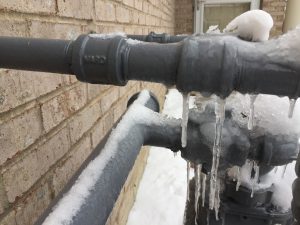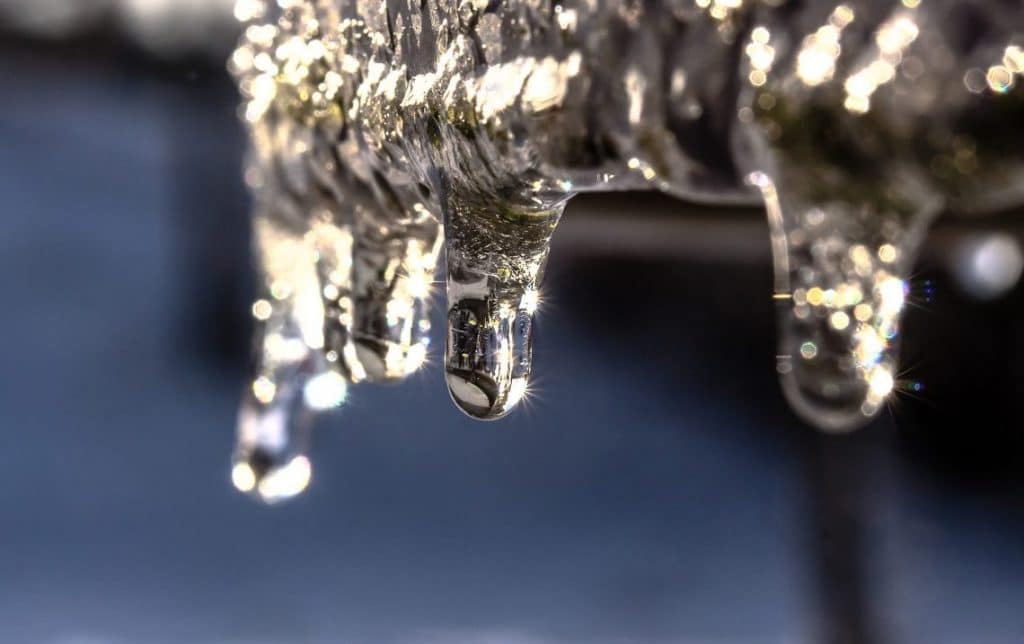Crucial Tips to Avoid Frozen Pipes in Winter: Specialist Guidance
Crucial Tips to Avoid Frozen Pipes in Winter: Specialist Guidance
Blog Article
They are making several great pointers on the subject of How to prepare your home plumbing for winter weather in general in this post directly below.

Winter can damage your pipes, specifically by freezing pipelines. Here's how to avoid it from taking place and what to do if it does.
Introduction
As temperatures drop, the risk of icy pipelines increases, possibly resulting in expensive repair services and water damages. Comprehending exactly how to prevent frozen pipes is important for property owners in cool climates.
Avoidance Tips
Shielding at risk pipelines
Wrap pipelines in insulation sleeves or utilize warm tape to protect them from freezing temperature levels. Concentrate on pipelines in unheated or outside areas of the home.
Home heating strategies
Maintain indoor spaces effectively heated, specifically locations with plumbing. Open cupboard doors to enable warm air to flow around pipes under sinks.
Exactly how to identify icy pipes
Seek reduced water flow from taps, uncommon odors or noises from pipes, and noticeable frost on exposed pipes.
Long-Term Solutions
Structural changes
Consider rerouting pipes away from outside wall surfaces or unheated locations. Add extra insulation to attic rooms, cellars, and crawl spaces.
Upgrading insulation
Purchase high-quality insulation for pipes, attics, and walls. Proper insulation helps preserve regular temperature levels and reduces the risk of icy pipes.
Securing Exterior Pipes
Yard tubes and exterior faucets
Detach and drain garden tubes prior to wintertime. Install frost-proof faucets or cover outdoor taps with insulated caps.
Recognizing Icy Pipes
What triggers pipes to freeze?
Pipelines ice up when exposed to temperature levels below 32 ° F (0 ° C) for prolonged durations. As water inside the pipelines freezes, it broadens, putting pressure on the pipeline walls and possibly causing them to break.
Dangers and damages
Frozen pipelines can cause water system disruptions, building damage, and pricey repair work. Ruptured pipes can flooding homes and create comprehensive structural damage.
Signs of Frozen Piping
Identifying frozen pipelines early can stop them from rupturing.
What to Do If Your Pipes Freeze
Immediate activities to take
If you believe frozen pipes, keep faucets open up to ease pressure as the ice thaws. Use a hairdryer or towels taken in hot water to thaw pipelines gradually.
Final thought
Stopping frozen pipes requires aggressive procedures and fast reactions. By understanding the reasons, signs, and safety nets, house owners can safeguard their plumbing throughout cold weather.
6 Proven Ways to Prevent Frozen Pipes and Protect Your Home
Disconnect and Drain Garden Hoses
Before winter arrives, start by disconnecting your garden hoses and draining any remaining water. Close the shut-off valves that supply outdoor hose bibs and leave the outdoor faucet open to allow any residual water to drain. For extra protection, consider using faucet covers throughout the colder months. It’s also important to drain water from any sprinkler supply lines following the manufacturer’s directions.
Insulate Exposed Pipes
Insulating your pipes is an effective way to prevent freezing. Pipe insulation is readily available at home improvement stores and is relatively inexpensive. Pay close attention to pipes in unheated areas such as the attic, basement, crawl spaces, or garage. Apply foam insulation generously to create a buffer against the cold. You can also wrap your pipes in heat tape or thermostat-controlled heat cables for added warmth.
Seal Air Leaks
Inspect your home for any cracks or openings that could let in cold air. Seal any holes around the piping in interior or exterior walls, as well as the sill plates where your home rests on its foundation. Additionally, make sure to keep your garage door closed unless you’re entering or exiting. Leaving it open creates a significant air leak that can lead to frozen pipes.
Allow Warm Air Circulation
During cold snaps, it’s essential to allow warm air to circulate evenly throughout your home. Leave interior doors ajar to promote better airflow. Open kitchen and bathroom cabinets to help distribute heat consistently around the rooms. If you have small children or pets, be sure to remove any household chemicals or potentially harmful cleaners from open cabinets for safety.
Let Faucets Drip
A small trickle of water can make a big difference in preventing ice formation inside your pipes. When temperatures drop significantly, start a drip of water from all faucets served by exposed pipes. This continuous flow helps prevent the water from freezing. Additionally, running a few faucets slightly can relieve pressure inside the pipes, reducing the chances of a rupture if the water inside does freeze.
https://choateshvac.com/6-proven-ways-to-prevent-frozen-pipes-and-protect-your-home/

I recently found that content on How To Avoid Freezing Pipes when doing a search on the web. Do you know about another individual who is occupied with the subject? Do not hesitate to promote it. We truly appreciate reading our article about How to Prevent Your Pipes From Freezing.
Customer Reviews Report this page